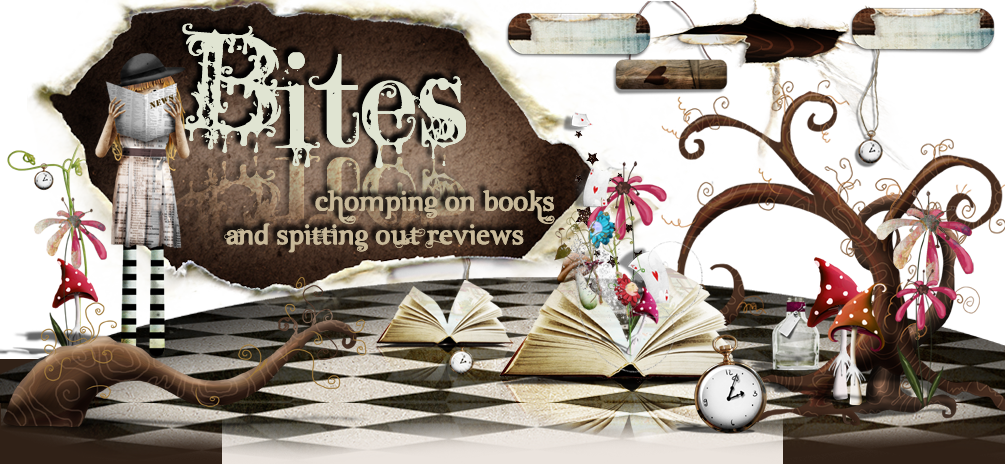A few nights go there appeared to be some uproar about the #
dearblogger conversation channel that popped up on Twitter. After April explained to this Twitter
noob what that hash thing even was, I, and many other people, contributed stuff to the conversation. The following day, posts started popping up about the "vindictive" and "catty" nature of a lot of the "advice" made by fellow
bloggers. The tweets being referenced as being in some way offensive really had be shocked. To me, they looked more like constructive criticism than anything even remotely catty.
So I decided to dig a little deeper. I spent some time sifting through the #
dearblogger channel to see if I was missing anything. Yeah, there was some snark in there (including a few of my own, are you surprised?) but in the greater scheme of
Twitterness, it was really minimal overall. So I kept looking and I kept seeing the "stop bullying" and "stop hating" tweets but for the life of me I couldn't figure out what these defensive tweets were responding to in the posts preceding them. Some of the advice statements were really hit home with multiple
retweets but still, I couldn't see what the issue was.
The thing with Twitter, a lot can be lost in that 140 character maximum. What's being posted as honest and concise is being interpreted as terse, curt and rude because there's no room for further explanation. As someone that has a tendency to overwrite, I can certainly see the problem there.
I think the other major issue here was the constructive criticism itself. If you're not open and receptive to it, it's going to feel like a personal affront. The backlash I saw at the advice being given I equated to people reviewing on
fanfiction.net. You have reviewers that genuinely like what they're reading say so and because they want to help, they might point out a few mistakes they might have caught so the author can avoid it in the future. Instead of a thank you, the reviewer gets pounced on as if they've just set a baby on fire. There was no harm meant in what was said but because the receiver wasn't open to the critique, they took it was a personal attack as opposed to a means of improving their writing.
If you're a writer, you're more attuned to constructive criticism. You'll see it for what it is - a means to improve - not a personal attack. You will know that you'll have no hope of improving without embracing constructive criticism. This is true in all aspects of life - even blogging. Of course there is a difference between constructive and destructive criticism and some of the advice could have been given without the
snarky edge but, in my eyes, that was minimal.
In the book blogging world, we are not governed by any entity. We don't answer to anyone except ourselves and there are no hard and fast rules. But there do appear to be some unspoken guidelines that have developed over time (not actually put in place) that the majority tend to stick to. So when we point out something that goes against what most of us practice, we're not necessarily saying, "cut it the fuck out." What we're saying is, "really, do whatever the hell you want. We can't stop you, but this other way seems to work a lot better for many more people."
Remember: the people doling out the advice have been around for a while and do have successful blogs. To completely ignore them because you don't like what they're saying is only a disservice to yourself. It might be beneficial to you to at least take a moment to listen to what they have to say while keeping your emotions on hold. Like with all constructive criticism, you take away only what you feel pertains to you and ignore the rest. You don't have to change if you don't want to, but when multiple people are pointing out the same exact issue, it's worth at least considering your options.
So take what you will out of this next bit but a good chunk of the advice on #
dearblogger is worth repeating and being elaborated on.
Blog DesignIt seemed that whenever someone mentioned an undesirable aspect of a blog design, they were pounced on with demands to leave design out of it since it was irrelevant.
But is it?
When a reader first
visits your blog, the very first thing they see isn't your contest but the overall design itself. If the blog looks like it was put together by a half-blind, color-blind, lobotomized chimp, guess where that reader is going? Away.
By all means do what you want with your blog design but if your plan is to grow, you're going to have to be a little flexible here.
One repeated piece of advice regarding design was if the design hurt your eyes then read it in Google Reader. The design issue is the reader's problem, not the
blogger's.
Is it?
If the blog design is so hard to read from the get go, are you, as a reader, honestly going to take the time to go into the Reader and read the posts to see if it's worth following? Or will you skip on to the next blog? Be honest. Remember, if multiple people have the same issue with your blog, it's a point to consider changing.
Some good points to remember are watch your colors and font sizes. While a bunch of funky colors may look cool, it doesn't mean it's easy to read. As someone that's built and designed my fair share of websites, there are a few design "standards" that everyone should really look into -
- Contrast is key - either dark text on a light background or light text on a dark background. People will have their preferences as to which they prefer but you can't have both so just choose one. Also, avoid prominent background designs in text areas. They tend to make the text harder to read. And avoid low contrast colors. Plum and navy are nice but as font color and background color, they tend to blend and strain the eyes.
- Speaking of straining eyes, microscopic font tends to do that too. I wouldn't recommend anything lower than ten or eleven-point font but twelve to fourteen is standard online.
- Automatically playing music is also kind of a no-no in general website design. For most people, it's annoying. You may like the music but your readers might not have the same tastes. If you insist on music that plays automatically, make the player really easy to find. If it takes someone more than three seconds (literally) to find the thing to turn it off, chances are they'll go at it the easy way and X right out of the window. You're much better off just having the player on there and giving the reader the option whether to listen or not instead of forcing it on them. Sure, it's your blog and you'll do what you want, but if you want an audience, you might want to give a little.
- Widgets and general blog graphics are the same thing. Have what you want on your site but the longer it takes to load, the less likely the reader is to stick around and wait for the thing to finally pop up. So you might want to cut those widgets down to books you really, really want instead of everything that's popular. It'll attest more to your personal tastes if you only have stuff up that you're really looking forward to.
You don't have to be an HTML wizard or spend loads of money to make your blog look pretty in order for it to be "acceptable." Even the simplest HTML knowledge can do loads for a blogger template and now that they have their own editor, it's much easier to make your blog more you. One of my favorite HTML help sites is
Lissa Explains. Yeah, it's a kids' site but it's basic HTML told in a very simple manner. No eye-crossing trying to read it. 90% of what I know about coding came from this site. And anyone that says they don't trust your content because you use a standard blogger layout is being ridiculous and snotty. Sometimes simpler is better than an HTML regurgitation.
ContentJust like everything else in blogging, it's totally subjective. Probably even
moreso than the rest of the parts combined. What you post on your blog is up to you and you alone. But that doesn't mean you shouldn't take a few things into consideration.
MemesMemes are great. They bring the book blogging community together for a topic a week or however many you decide to post. The thing is, you'd be well advised not to overdo it.
If a reader goes to your site and sees nothing but memes, they might start to question whether you're even capable of creating original content. Why else would you rely so heavily on
pre-fabricated posts?
So participate in them but be sure to strike a good balance with your other content. An even better approach to make yourself stand out (I can't be the only person that heaves an
emo sigh when the blog roll is saturated in Waiting on Wednesday posts or
whathaveyou) is to create your own. That doesn't mean just changing the title of an already established meme but doing something completely new. Chances are it'll end up being a feature (unlike a meme, a feature is unique to your blog and isn't viral) but it could be picked up into a meme later on down the line if people like it enough. It'll make you that much more unique and special in the greater blogging world.
ContestsWho doesn't love a good contest? I know I do. There are a few facets to this.
- Like memes, you'll want balance with contests. If you have more contests than book reviews or anything else, you'll end up looking more like that guy at Costco handing out samples than a book blogger genuinely enthusiastic about a book enough to give it away. You basically become a shilling billboard and while you may get a lot of hits because people love free stuff, you'll start to lose the respect of your fellow bloggers because you're not doing any real work to earn the attention you're getting. Plus those numbers will drop off as soon as the contests stop because there's nothing else to back it up. It's disingenuous.
- Extra entries and requirements are sticky issues. Have as many extra entries as you want but if people see too many, they may be more inclined to walk away from the contest altogether. A simple solution to both sides: post all the extra entries you want and when entering, only do those you feel like. Sure, your chances of winning decrease dramatically because you're not doing the forty-seven things that could get you 107 extra entries. But at least you have a chance.
- Requirements are a little more difficult. Requiring people to follow your blog in order to enter is your choice, but know it looks a little tacky. It's exceptionally transparent that you're just trying to boost your follower numbers by doing this (which, in the greater picture, don't mean as much as people would like them to) and it's really not a well-respected practice. Good boost to your ego to see that follower number go up but that's about it.
- Requiring people follow other blogs to enter is even tackier. I'm all for promoting other book bloggers but there are certainly better ways to do it than forcing people if they want a shot at winning something. Let people follow those blogs because they want to, which means they'll keep going back, instead of making them and nearly assuring it's nothing more than a superficial visit.
ReviewsThe heart and soul of a book blog, everyone has different review styles and ratings systems but there are a few nuances that reviewers should be aware of when reviewing.
When your "review" is more summary than review, it's a bit of an issue. The publisher spent budgeted money preparing and sending you that ARC to review and the most you can give them is a post that's taken up mostly by the copy and pasted cover blurb and the cover image with three sentences on what you thought? Is that really a fair trade-off? Put yourself in the publisher's shoes. Wouldn't you have liked to have seen a little more? Be honest. Substantiate your claims, good or bad. You don't have to write a novel but remember what went into getting that ARC to you and return the favor accordingly.
I was shocked to see that a piece of advice in the likes of, "find something positive in everything you read, there's a market for every book" was pointed out as being nasty. What's nasty about that? It's true.
While it's not the
reviewer's job to actually find that market, it is their job to remember that someone, somewhere, found something viable in the novel they're holding. It wouldn't have been acquired otherwise. So while you might have absolutely hated it, there's probably someone out there
that'll love it. And chances are you saw at least something nominally redeeming in the story, even if it was fleeting. Point that out and be a little empathetic. Point out that you can see how readers of this or that would like the book but it definitely wasn't for you. It doesn't do anyone any good to start a crusade against a book to make sure no one reads it.
And the adverse is true too. Saying absolutely everyone will love it is fallacious because they won't. This is where substantiating those claims will come in handy. It'll give your readers a better definition of your personal good and bad.
At the end of the day, do what you want to do. No one's going to stop you. We're not the Gestapo. Just remember that the people giving the advice are doing it for a reason - it works. it wouldn't hurt to listen every once in a while to the constructive criticism. It'll help you learn and grow as a book blogger.
We're working in a community now where a lot of the kinks of book blogging have been worked out. Those blogs
that're older have ironed out the bumps of the unknown and so blogging as a result should be a little easier. Most of the answers are already there for you. All you have to do is look or ask.
It's the people that can't be bothered that frustrate us. That start book blogs for the free books and not the love of reading. That make it a point to brag about what they get outside of an In My Mailbox post. That function as if they're sticking it to the rest of us
schlubs that actually worked to get where we are. No one's saying don't try something new but do it with class and dignity and respect for everyone else around you. The only way you're going to get respect is if you give it. It's not handed out freely. It's earned and that requires work. Book blogging is a job. It takes commitment. If you're going to do it, know what you're getting into. Read other blogs. Research. Ask questions. Have fun. Just because
someone's giving you advice doesn't mean they're raining on your parade.
Unless your goal is to review in a relatively
hitless bubble, then by all means ignore this post, and all the rest of the advice out there, to your heart's content. It's no sweat off my back. And remember: you don't have to love the people you work with. Shit, you don't even have to like them. Tolerance is key. Say what you want, do what you want and be yourself. That's the sure way to be successful. In theory.

 song can heal a wound and a shadow can work deep magic. As the wood-carver's daughter, Kate held a carving knife before a spoon, and her wooden charms are so fine that some even call her "witch-blade" - a dangerous nickname in a town where witches are hunted and burned in the square.
song can heal a wound and a shadow can work deep magic. As the wood-carver's daughter, Kate held a carving knife before a spoon, and her wooden charms are so fine that some even call her "witch-blade" - a dangerous nickname in a town where witches are hunted and burned in the square.







































